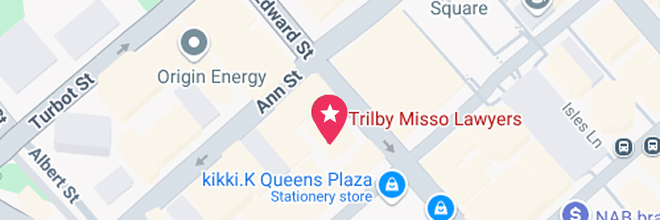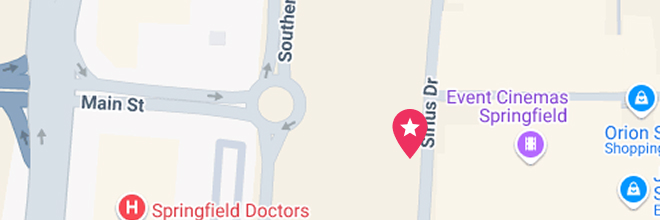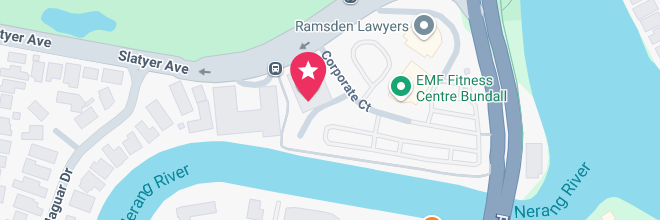Our Brisbane CBD Office
- Suite 400, Level 4/288 Edward St, Brisbane City QLD 4000
- (07) 3910 5470




How Compensation is Calculated in Personal Injury Claims in Queensland
Personal injury claims in Queensland aim to provide fair compensation to individuals injured due to someone else’s negligence. Compensation, often referred to as damages, is calculated to address the financial, physical, and emotional impacts of the injury. Understanding how this process works can help injury victims manage their expectations and make informed decisions during their claims process.
If you’re seeking advice on personal injury claims in Brisbane, this comprehensive guide will explain the key factors involved in calculating compensation and how a skilled injury lawyer can assist in maximizing your entitlements.
Key Components of Compensation in Queensland
In Queensland, personal injury compensation is calculated by assessing various types of damages under the law. These include:
General damages are awarded to compensate for non-economic losses, such as:
In Queensland, pain and suffering claims fall under the umbrella of personal injury law and are designed to compensate individuals for non-economic damages resulting from an injury caused by another party’s negligence. These damages cover the physical pain, emotional distress, and loss of enjoyment of life experienced due to the injury.
The amount of compensation is determined by the Civil Liability Act 2003 (Qld), which uses an “injury scale value” (ISV) to assess the severity of the injury. The ISV assigns a numerical value, which corresponds to a compensation range. To succeed in such claims, the injured party must provide evidence of their suffering, often through medical reports and expert testimony.
Strict time limits apply, typically requiring claims to be initiated within three years of the injury. Seeking legal advice early ensures compliance with procedural requirements and maximizes the chances of a fair settlement.
To calculate general damages, Queensland courts rely on the Civil Liability Act 2003 (Qld) and the accompanying regulations which include a structured table of injuries. Each injury is assigned an Injury Scale Value (ISV), which ranges from 0 (minor injuries) to 100 (catastrophic injuries). The ISV determines the monetary compensation you can receive for general damages.
For example:
Past Economic Loss
This covers income you lost because your injury prevented you from working. It includes wages and benefits you would have earned from the date of the injury until the time of settlement or trial.
Future Economic Loss
If your injury impacts your ability to work in the long term, you may be entitled to compensation for future income loss. Courts consider factors such as:
Courts also apply a discount rate to future economic loss to account for the lump sum being paid upfront in one lump sum.
Past Medical Costs
You can claim reimbursement for all medical expenses incurred as a result of your injury, such as:
Future Medical Costs
If ongoing medical treatment is necessary, you may also be entitled to compensation for future expenses. These costs are assessed based on expert medical evidence, often provided by medico-legal specialists.
If your injury requires care or assistance, you may be able to claim compensation for:
This category includes any additional costs directly related to your injury, such as:
If your injury reduces your ability to work, you may also lose contributions to your superannuation fund. Compensation is calculated to reflect the percentage of superannuation you would have earned on lost wages.
In some cases, interest can be awarded on damages, particularly for past economic losses and out-of-pocket expenses. However, interest is not typically awarded on general damages in Queensland.
Factors That Influence Compensation Calculations
Calculating compensation in a personal injury claim is a complex process influenced by several factors:
The more severe and life-altering your injury, the higher the compensation is likely to be. Medical evidence plays a critical role in demonstrating the extent of your injury and its impact on your life.
If you had pre-existing health issues, your compensation might be reduced to reflect the degree to which your injury exacerbated those conditions rather than causing entirely new problems.
If you are found partially at fault for your injury, your compensation may be reduced proportionally. For example, if you were 25% responsible for the accident, your total damages could be reduced by 25%.
Strong evidence, including witness statements, expert opinions, and documentation, can significantly impact the outcome of your compensation claim.
The Role of Medico-Legal Evidence in Compensation Calculation
Medico-legal evidence is often a cornerstone in determining compensation. A medico-legal specialist evaluates:
This independent medical opinion ensures that compensation is calculated based on objective, expert assessments.
Pre-Court Procedures in Queensland
Most personal injury claims in Queensland must go through pre-court procedures before proceeding to trial. These steps, designed to encourage out-of-court settlements, include:
Many claims settle during this phase, avoiding the need for a costly and lengthy trial.
Settlements vs. Trials: How Compensation Differs
Settlement Benefits
Trial Risks
How a Brisbane Injury Lawyer Can Help Maximize Your Compensation
A skilled compensation lawyer in Brisbane will:
FAQs About Compensation Calculations in Queensland
The process can take several months to years, depending on the complexity of your case and the willingness of the insurer to settle.
Compensation calculations account for long-term recovery prospects, and any improvement may reduce future economic loss and medical costs.
Yes, psychological injuries such as PTSD, anxiety, or depression caused by the accident can be included in your compensation claim.
Confidentiality is a common question when it comes to personal injury settlements. If you’re pursuing a personal injury claim in Brisbane, it’s essential to understand whether your settlement agreement will be kept private.
Confidentiality in Settlement Agreements
In many personal injury cases, settlements are reached through negotiation rather than a public trial. When a settlement is reached, the terms of the agreement may include a confidentiality clause. This clause ensures that details such as the amount of compensation and the specific terms of the agreement remain private.
Confidentiality benefits both parties. For the injured claimant, it protects sensitive personal and financial details from becoming public. For the insurer or defendant, it prevents setting a precedent that could influence future claims.
When Settlements Are Public
Not all settlements are confidential. If your claim goes to court and a judgment is made, the outcome is typically part of the public record. However, out-of-court settlements—common in Queensland’s personal injury claims—are more likely to include confidentiality provisions.
Discussing Confidentiality with Your Lawyer
If you’re concerned about confidentiality, it’s crucial to discuss this with your injury lawyer. An experienced Brisbane injury lawyer can negotiate terms that protect your privacy while ensuring you receive fair compensation.
Can I Claim for TPD and an Injury Claim?
Yes, you can potentially claim for Total and Permanent Disability (TPD) insurance benefits and make a separate personal injury claim in Queensland. These claims are distinct and can be pursued simultaneously if you meet the eligibility criteria for both. Understanding the differences and how they interact is essential for maximizing your entitlements.
What Is a TPD Claim?
A TPD claim is made against your superannuation fund or private insurer if you are unable to work in your usual occupation (or any occupation suited to your training, education, or experience) due to an injury or illness. TPD insurance is typically included in superannuation accounts, providing financial support if you can no longer work permanently.
Key aspects of a TPD claim:
What Is a Personal Injury Claim?
A personal injury claim seeks compensation if someone else’s negligence caused your injury. For example, this could include a car accident, workplace injury, or public liability incident.
Key aspects of a personal injury claim:
Can You Claim Both TPD and an injury compensation claim?
Yes, you can claim both TPD benefits and personal injury compensation if eligible. For example:
Are the claims Independent?
Yes, TPD and personal injury claims are independent of each other.
The outcome of one claim does not necessarily affect the other. However, your personal injury lawyer should coordinate these claims to ensure there are no overlaps that could affect your entitlements.
Seek Legal Advice
Navigating TPD and personal injury claims simultaneously can be complex. Consulting an experienced Brisbane injury lawyer ensures your rights are protected and your claims are managed effectively. A lawyer can:
Pursuing both claims can provide comprehensive financial support during a challenging time.
Conclusion
Calculating compensation for personal injury claims in Queensland involves a detailed assessment of your financial, medical, and emotional losses. With so many factors at play, having an experienced injury lawyer in Brisbane is crucial to ensure you receive the full compensation you deserve.
If you’ve been injured due to someone else’s negligence, don’t navigate the legal process alone. Contact a trusted Brisbane compensation lawyer today to discuss your case and protect your rights.
Read more about compensation and damages in our blogs.
Kathryn is Trilby Misso’s Chief Executive Officer.
Meet KathrynUse this simple online tool and find out if you have a claim in less than thirty seconds. You can choose to remain anonymous.
Your next step is a small one. All you need to do is give us a call on 07 3910 5470 or complete this form here to arrange a quick chat.
During this initial conversation, we will:

We understand that taking legal action can be stressful, and we’ll do all we can to ease your concerns.
The chat can take place at our place, your place, or by phone. There is no cost, no pressure, and no obligation.
Call 07 3910 5470 or fill out this form, and we’ll get back to you within 2 hours (during business hours). We look forward to meeting you.
enquire now